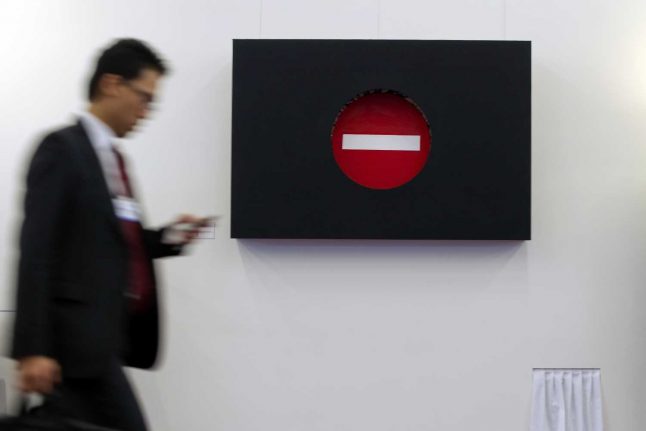Swiss authorities announced on Wednesday new measures to rein in skyrocketing coronavirus cases in the country, and acknowledged that it no longer made sense for most travellers to the country to quarantine.
But while introducing stricter rules for mask-wearing and crowd sizes, the government also said it would lift the requirement for people arriving from a long line of countries to quarantine for 10 days upon arrival in Switzerland or risk a $10,000-fine.
Switzerland has until now put countries and regions on its “red list” for quarantining once Covid-19 infection rates there passed more than 60 per 100,000 people for a period of 14 days.
But in recent weeks, the country itself has seen its own infection rate gallop past that mark and has over 760 cases for 100,000 people for the past two weeks.
That makes the country one of the hardest-hit in Europe, making it pointless to impose quarantines on people arriving from less-impacted regions.
According to Switzerland’s new quarantine rules, only Belgium, the Czech Republic, Andorra and Armenia – along with three regions of France, including Paris – are considered high risk.
In France, the Hauts-de-France and ÎIe de France / Paris regions as well as the overseas territory of French Polynesia are considered to be risk zones.
Der Bundesrat definiert einen neuen Schwellenwert für die Aufnahme von Staaten und Gebieten auf die Risikoliste: Auf der Liste sind ab morgen nur noch Staaten und Gebiete, deren Inzidenz um mehr als 60 höher ist als die Inzidenz der Schweiz. pic.twitter.com/ClRVkzLLGA
— BAG – OFSP – UFSP (@BAG_OFSP_UFSP) October 28, 2020
The announcement is a significant change from the country’s previous quarantine rules, where dozens of countries and regions of countries were considered to be high risk.
READ: Switzerland announces sweeping new Covid-19 restrictions
The duration of the quarantine will however remain at ten days.
The federal government said the “radical” change of course was due to rising infection rates all across the world.
How are countries deemed high risk?
Only countries or regions whose rate per 100,000 inhabitants exceeds by 60 that recorded in Switzerland would be placed on the red list.
As at Wednesday, October 28th, Switzerland’s infection rate per 100,000 residents is 693.
This means that this figure should be 753 (693 + 60).
Only the four countries mentioned above – along with the regions of France indicated – are above this figure.



 Please whitelist us to continue reading.
Please whitelist us to continue reading.
Member comments